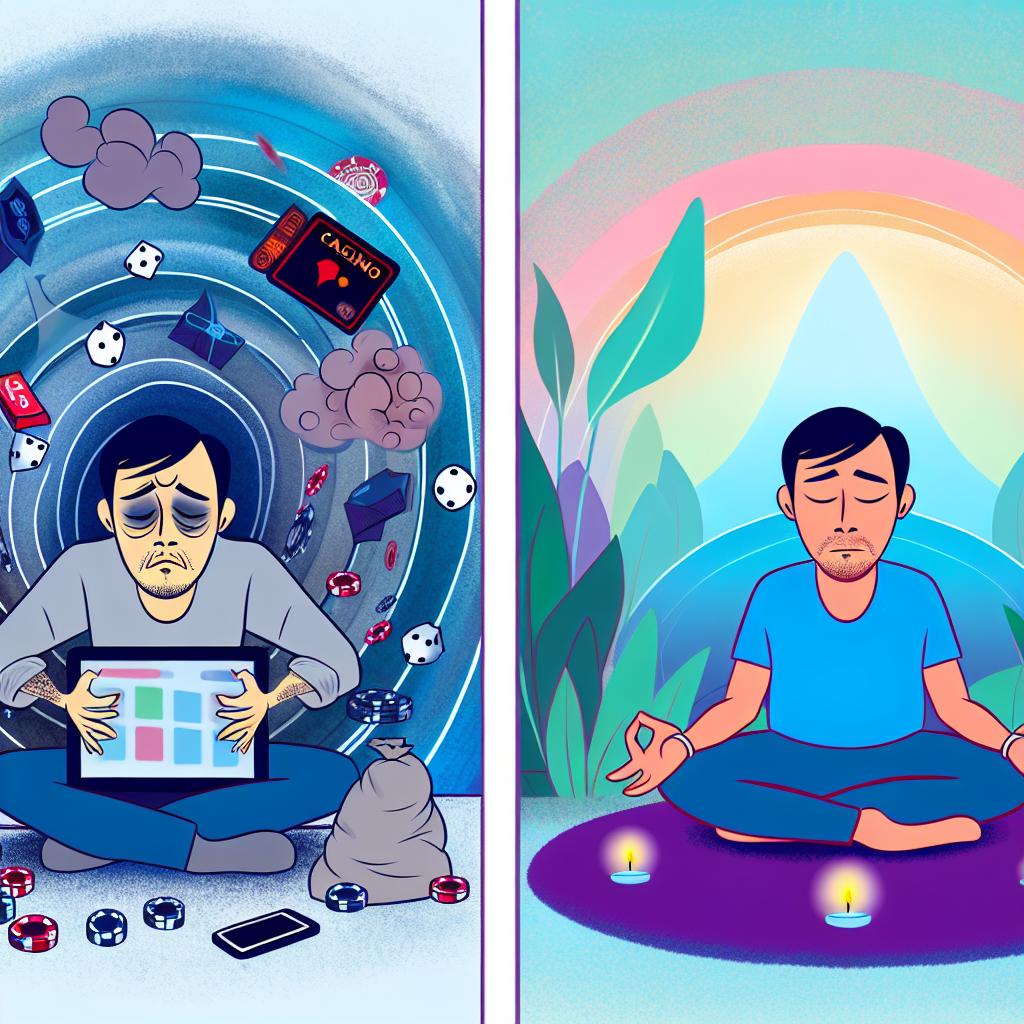Understanding the Intersection of Mindfulness, Meditation, and Gaming Habits
Mindfulness and meditation are increasingly being recognized as effective tools for managing and reducing excessive gaming habits. As gaming becomes an integral part of modern leisure activities, it is crucial to explore ways to maintain balance and prevent potential negative impacts.
The Rise of Gaming and Its Impacts
Over the past few decades, digital gaming has become one of the most popular forms of entertainment. It has transformed how individuals, especially younger generations, spend their free time. The availability of games on smartphones, consoles, and PCs allows for easy access and has contributed to the increase in the number of hours spent playing. While gaming offers many advantages like improving hand-eye coordination, problem-solving skills, and providing relaxation and enjoyment, it can also lead to several negative consequences when not managed properly.
Individuals who indulge in prolonged gaming sessions may face disrupted sleep patterns, which can lead to fatigue and cognitive difficulties. Additionally, excessive gaming can negatively impact academic performance as it often consumes time that might otherwise be devoted to studies and learning. Another major concern is the impairment of social interactions; spending excessive hours in virtual worlds can detract from time spent with family and friends, potentially leading to feelings of isolation.
What is Mindfulness?
Mindfulness is the practice of being present and fully engaged with the current moment, which means living in the now with an acceptance of all emotions and thoughts without judgment. This practice emphasizes observing one’s internal states rather than reacting to them automatically. Originating from Buddhist traditions, mindfulness has been adapted and integrated into modern psychological practices due to its potential benefits for mental and emotional health.
By cultivating mindfulness, individuals can increase their self-awareness and mindfulness in decision-making, which extends to their gaming habits. This intentional focus can enable gamers to establish a clearer understanding of how much time they spend gaming and if it aligns with their goals and priorities.
Benefits of Meditation
Meditation, often aligned with mindfulness, is a technique focused on developing concentration and achieving a mentally clear and emotionally calm state. Those who practice meditation regularly experience ongoing benefits that enhance various facets of life.
Among its numerous benefits, meditation has been shown to substantially reduce stress and anxiety levels, a crucial benefit considering the fast-paced, multitasking demands of modern living. Meditators learn to calm the nervous system, which can lead to better heart health and a stronger immune response. Meditation also improves concentration and attention span, making it invaluable for students and professionals alike. Emotionally, regular meditation practitioners report improved emotional resilience and greater overall satisfaction with life.
Implementing Mindfulness and Meditation in Gaming
Incorporating mindfulness and meditation into one’s daily routine can be highly beneficial for gamers, offering a powerful way to develop healthier gaming habits. Here are a few ways these practices can contribute:
Enhanced Awareness: By regularly practicing mindfulness, gamers can become more consciously aware of the time spent gaming. With an increased awareness of their gaming habits, they are more likely to recognize and adjust their playtime when it starts to interfere with other significant life activities. This practice of self-monitoring ensures a balanced approach to leisure and responsibilities.
Impulse Control: Meditation strengthens impulse control, a critical skill for those who often find themselves unable to resist the draw of video games. A disciplined meditation practice can heighten one’s ability to delay gratification and choose more constructive activities over defaulting to excessive gaming.
Stress Reduction: Many gamers turn to video games as an escape from stress. While this can provide temporary relief, it doesn’t address the underlying stressors. Mindfulness offers an effective alternative, teaching individuals how to manage and reduce stress through breathing, relaxation techniques, and a focused presence. By reducing stress in healthier ways, individuals can spare their gaming time for enjoyment rather than stress relief.
Explore more about mindfulness here.
Conclusion
In conclusion, the integration of mindfulness and meditation into gaming offers an innovative approach for individuals aiming to manage and reduce excessive gaming habits. Through these practices, gamers can cultivate enhanced self-awareness, improve their impulse control, and achieve an overall healthier balance between gaming and other life activities. These tools, increasingly recognized for their effectiveness, present promising options for gamers to make more mindful and deliberate choices about their gaming habits.
As the popularity of gaming continues to rise, equipping individuals with skills to balance their gaming with other aspects of life becomes increasingly important. By focusing on mindful and meditative practices, gamers can ensure that their leisure activities contribute positively to their overall well-being. This positive incorporation can support not only better gaming experiences but also improved life satisfaction and mental health.

